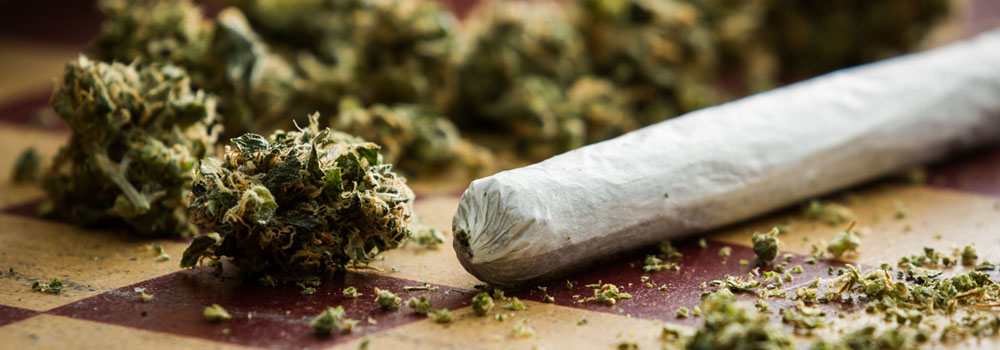Cannabis Treatment and Rehab
Cannabis Info
One of the most difficult substances to give up is marijuana and it doesn’t get any easier with the increasing social acceptance of the drug. It’s bad enough that you might have an addiction, without you or those around you not even recognising it as a ‘real’ addiction. As you read on, you’ll learn more about cannabis addiction,andcome to understand why you are addicted to the drug.
On the other hand, it is possible that you recognise your problem and are ready to reclaim your life. We’ll talk about what your options are for treatment and rehabilitation and how best you can succeed on your journey to recovery.

Treatment for marijuana abuse
There are various reasons why you might need to seek treatment for marijuana abuse. These are typically psychological or physical problems, particularly dependence. If you are dependent on marijuana, it means you’ll keep using it even if it creates problems for you in your family life, at work, or in your personal life.Dependence tends to lead to addiction, but you don’t have to let it come to that. Therefore, seek treatment once you begin to develop dependence.
If you’ve got to the point of being dependent on the drug, you will experience withdrawal symptoms if you try to stop using it. Those symptoms may include sleep disturbance, depression, anxiety and irritability. They can drive you right back to using the drug if not managed properly, which is where professional treatment comes in.
Call our admissions line 24 hours a day to get help.
How Cannabis Rehab Works
Most rehab programmes last only a few months, but they are a crucial part of the journey to long-term sobriety. While every rehab is different, most have a similar structure in terms of the nature of treatment. First, you willhave to go through a detox phase when you’ll let all the toxins left by the drug drain out of your system.
Through the detox stage, you’ll experience withdrawal symptoms, which will be managed by professional staff to make them less uncomfortable for you. To help with the effects of withdrawal, you may be given nutritional support, pharmaceutical therapyand intravenous (IV) fluid replacement. After detoxification, you’ll receive therapy for the remainder of the rehab programme.
Why treatment is necessary
If you’re addicted to marijuana, there’s no doubt you’ll benefit immensely from treatment. Addiction can mess up not only your health and life, but also the lives of those you love most. It’s best to take care of the problem as soon as you possibly can, in order to limit the damage it can cause. With addiction, there’s no time to waste at all.
To determine whether or not you need treatment, you should consider how often you smoke marijuana and how long you’ve smoked it at that frequency. Also, you must consider whether you feel a need to smoke in order to feel normal or happy.
If you‘ve been smoking regularly for a long time and feel dependent on the substance, it is time to seek help – even more so if your addiction is affecting your health, work or relationships negatively.
Treatment that is available
There are a number of treatment options available to you. You can get into a rehab programme or clinic for detox. In a detox programme, you will go on to receive therapy for the rest of your stay in the facility. Getting clean in a detox facility gives you the option of continuing with therapy on an outpatient basis.
Either inpatient or outpatient treatment can work for you, depending on your specific situation. Therapy may be individual, family or group based. Your therapist may use one of a number of different behavioural therapies, such as motivational enhancement therapy and cognitive behavioural therapy (CBT), or a combination. Other treatment options include support groups and sober living homes, which typically come after rehab.

Types of marijuana addiction therapy
The three most popular types of addiction therapy used by therapists are motivational enhancement therapy, contingency management and cognitive behavioural therapy (CBT). While they are all aimed at ensuring you can maintain long-term sobriety, they each have different approaches.
Motivational enhancement will focus on mobilising your internal resources to drive change. Contingency management is about frequent monitoring of a target behaviour in order to provide or remove tangible rewards when you display the target behaviour or not. CBT will teach you how to identify triggers and problematic behaviours, as well as how to correct them and any other co-occurring problems.
Residential/inpatient treatment centres vs. outpatient services
Inpatient treatment requires you to take up residence at the centre for the duration of your treatment, usually for a minimum of 30 days or so. We like to recommend inpatient care in most cases, because it allows you to enjoy round-the-clock supervision by experts and helps you feel like you are part of a community. The level of care is intense and you won’t have to deal with any possible distractions or triggers which may be present in your home environment.
Residential treatment is not always ideal, especially if you don’t like to stay in a structured environment that dictates your meal times, sleep times and everything else you do throughout the day. This is actually an advantage, as it is very useful for speeding up recovery, but it’s important for you to be aware. If you sign up for inpatient treatment, you will have to take leave from work. Another issue to consider is that your insurer might only cover outpatient treatment.
Outpatient treatment allows you to commute from home,as needed. The advantage here is you won’t have to take leave from work or abandon your responsibilities at home. You can attend treatment sessions atweekends and in the evenings, plus it is less expensive than inpatient treatment.
The downside to getting treatment on an outpatient basis is you face the risk of being exposed to the same triggers, risks and influences that might have contributed to your substance abuse. You may be unable to cut access to marijuana and it is easy to be distracted from the recovery journey. Also, you won’t have the round-the-clock care that can be beneficial should any issues arise.
Call our admissions line 24 hours a day to get help.
Pharmacological approaches
There are many drugs which may be administered to block the effects of marijuana or ease symptoms. They are still being developed, but oral THC is showing promise as a means to reduce withdrawal symptoms.
Behavioural Interventions
Therapists may use behavioural interventions such as motivational enhancement therapy, contingency management, and cognitive behavioural therapy. These are all aimed at helping you achieve long-term sobriety, even though they use different approaches. They may be used on their own or as a combination believed to be perfectly suited to you.
Marijuana withdrawal and detox
The longer you use cannabis- and the heavier your usage – the higher your risk of experiencing withdrawal symptoms when you quit. Marijuana may not be as dangerous as heroin and cocaine, but there is a good chance you’ll still face withdrawal symptoms when you try to stop. If you have been unable to quit marijuana – even after trying a few times – a detox programme where you’ll get help managing the symptoms may be the perfect solution for you.
What are the signs and symptoms of marijuana abuse and addiction?
Some of the signs and symptoms indicating marijuana abuse and addiction may be physical or behavioural. Some of the physical signs include dry mouth, hunger, constant mucus-filled cough, bloodshot eyes, rapid heartbeat and slow reaction time. The behavioural symptoms may include paranoia, anxiety, problems with memory and learning, impaired coordination and distorted perceptions, amongst others.

What does it mean to be addicted to marijuana?
Addiction develops after you have reached the level of dependence. What that means is you will experience withdrawal symptoms if you try to stop using the drug, because your system has become so used to operating at the heightened state produced by marijuana. When you are addicted, you actually need the substance to avoid psycho-emotional issues and cope with the daily stress of life.
Some of the symptoms of addiction include obsessing about how to obtain the drug, inability to quit, feeling indifferent about work or family, cravings when off the drug and continuously using the drug, even whilst being aware of the negative consequences.
Call our admissions line 24 hours a day to get help.
Paying for marijuana addiction treatment
There are a number of ways to pay for treatment and it is even possible to get free treatment through a community-based organisation or the NHS. Free treatment options are often limited, so you may have to look elsewhere. Your personal savings are an option, while if you have private health insurance, you may already be covered for the cost of treatment. Other options include paying by credit card or asking friends or family for financial help.
Sourcing the best marijuana addiction rehab for you
Even though marijuana is considered by many to be generally harmless, there’s a good chance of developing dependence. If you believe you’ve become addicted to the drug, it’s best to seek help immediately, so you can get started on your journey to recovery.
Helping a loved one get treatment for marijuana addiction
It hurts to see a loved one suffer from an addiction, especially if it’s threatening not only their health, but the family as a whole. The fact that your friend or relative is addicted does not mean they like being addicted. They might even have tried to quit before, but were unable to. It is up to you to make them understand how their behaviour is affecting you and the rest of the family.
To be in the best position to help, learn as much as you possibly can about cannabis addiction. Our website provides all the information you need. Approach your loved one from a position of empathy. You can even stage an intervention if necessary, to encourage them to seek treatment on their own. It won’t always be easy, but try to remain patient.
The rehabilitation process
The rehabilitation process begins with an initial assessment, which is used to diagnose your addiction and determine the most appropriate course of treatment. After this stage is medical detox, during which you’ll allow all the toxins of the drug to drain from your system completely. Medical practitioners will provide the necessary supervision throughout the duration of detox and you may be given medication to ease your symptoms.
Following detox is therapy, which is the more psychological aspect of the treatment process. Simply draining your system of the drug is not sufficient, as you must adjust your thought patterns and tackle your addiction at its root. Once the treatment programme is complete, you will continue with aftercare, which is not as regimented as rehab (for example, support groups).
Call our admissions line 24 hours a day to get help.
Marijuana medical detox
Medical detox refers to a programme where you’ll have help from nurses and doctors as you gothrough detox. You’ll be given medication to manage your withdrawal symptoms and make withdrawal more bearable for you. It is especially useful if yours is a situation that requires particular attention – for instance, a dual diagnosis.
Medical detox is a no-brainer if you would actually be jeopardising your health without medical supervision or if you’re physically addicted. You’ll have peace of mind knowing that you’ll be well taken care of if any issues arise.
What is amedically assisted marijuana detox?

Medical assistance is recommended during detox if you’ve been abusing other substances in combination with marijuana. In such cases, you could be facing serious health risks during detox without a satisfactory level of medical assistance. Another example is where you might be suffering impairment of your daily functioning due to a marijuana-induced disorder. Medically assisted detox ensures you get the medical care you need, whilst in detox.
Post detoxification therapy
After the detox phase comes therapy, where you will be equipped with the psychological tools you need to complete your journey of recovery from addiction. There are different models which may be used by your therapist, but they all serve the purpose of paving the way for long-term sobriety.
Some of the different approaches used include motivational enhancement therapy, contingency management and cognitive-behavioural therapy (CBT). Therapy may also be on an individual basis, family therapy or even group therapy. The models may be used in any number of combinations believed to be best for you.
Is detox the answer to marijuana addiction?
Detox is certainly the first step of breaking free from your addiction, but it is certainly not the entire solution. It only serves to rid your system of the toxins of the drug and nothing more. To truly begin the process of undoing the damage caused by addiction, you will have to go through therapy, as that is the only way to get to the root of the problem and solve it. Even after therapy, you will have to join an aftercare programme to keep the momentum going.
Call our admissions line 24 hours a day to get help.
What to do after marijuana treatment and rehab
After rehab, your focus should be on rebuilding your life and hopefully, undoing any damage that might have been done to your social relationships. If you’ve cut out good friends due to your substance abuse, you can seek them out and make amends.
If you have abandoned hobbies or other activities that meant a lot to you, revive yourpassion for them. However, make new friends and find new activities to enjoy if that works better for you.
What happens after treatment?
After completing treatment in a rehab facility, the next line of action is to get started in an aftercare programme, such as a 12-step programme or sober-living home. Aftercare is crucial for maintaining long-term sobriety, because it provides social support from others who have been through – or are going through – what you are experiencing. It can be a great opportunity to interact and make new friends, who may turn out to be instrumental in your long-term recovery success.
Staying clean and sober
Maintaining sobriety after treatment may not be easy, but it is certainly worth it in the long-term. The focus of therapy and aftercare is how to make sure you don’t return to substance abuse for any reason whatsoever. While those may equip you with the tools you need and provide the necessary support, the real strength to stay clean comes from you.
It’s up to you to apply all you’ve learnt into your daily life. You may fall once or even twice throughout the journey, but that does not mean the journey is over. Get up and keep going, because you owe it to yourself to be victorious.
Peer/family support and the road ahead
There is nothing quite like support from family and friends; it can make all the difference between a relapse or long-term success.
With a family and network of friends who are encouraging, you will thrive. However, it is as much about you as it is them. Therefore, you should make it as easy for them as possible by encouraging them to focus on themselves and their own lives, as you try to focus on yours. Also, appreciate their effort and allow them to detach themselves from your behaviour as much as possible.

Helping the marijuana addict
We understand that it is never easy to have a friend or family member be addicted to cannabis. You can do your bit to help your loved one by learning as much as you possibly can about their addiction and steering them in the direction of treatment.
There are a number of treatment options you can explore, including 12-step support, family education, motivational incentives, talk therapy interventions and patient education.
Call our admissions line 24 hours a day to get help.
Learning new habits
During treatment, one of the areas you’ll focus on will be how to form new habits to take the place of the old, destructive ones. The habits you’ll be encouraged to form will be healthier ones, such as eating the right foods and exercising. In rehab, you’ll get a good head start with these, but it’s important that you keep up the momentum – even after treatment – as new habits can be a great help for speeding up recovery.
FAQs
How long does marijuana stay in your system?
As you take cannabis, the THC builds up in your system. The more of it you take, the longer the THC will stay in your body. Another factor that is crucial here is how quickly your body metabolises THC. Regardless the method of use, the length of time it stays in your system will depend on how often you consume it.
If you consume the drug once, it may stay up to eight days in your system and up to 15 days if you use it frequently. If you consume it regularly, it will remain in your system for up to 30 days and as long as 45 to 77 days if you use it heavily.
Which marijuana treatment is right for you?
In order to determine which treatment option is best for you, you’ll undergo an assessment of your condition. We’ll have to determine the extent of addiction, whether there are any co-occurring conditions, and if you’ve been involved with polysubstance abuse. We’ll also consider factors like your age, gender, religious affiliation (or lack of) and your financial situation, amongst others.
Should I get an executive or luxury rehab centre?
Seeing as you’ll have to live in the facility for the duration of your treatment, the least you can do for yourself is ensure maximum comfort. Luxury rehab is available to fulfil yourneed for comfort in the form of luxury housing, as well as gourmet food and recreational activities. Executive rehab will be the ideal option for you if you are a company executive for instance, and need the exclusivity and privacy to get the treatment you need, away from the public eye.
Which organisations are trusted ones?
Marijuana Anonymous UK can provide all the help you need after treatment. What you get from them is much-needed social and community-based support, as you learn from others who have been through what you are going through.
How long does marijuana withdrawal last?
The length of time it will take for withdrawal to pass depends largely on how much marijuana you have used and how long you have been using it. The more of the drug you use and the higher the frequency of usage, the more likely it is that you will experience a more severe and longer withdrawal.
Your physiology also plays a significant role, because you may be naturally less tolerant of physical and emotional distress. If that is the case, withdrawal will prove more difficult and will take longer. Typically, you can expect withdrawal symptoms to last between the first 24 hours since your last dose, peaking two or three days after. Overall, most of your symptoms will last about two weeks, but may extend to several months if you are a chronic user.
What are the marijuana rehab options?
One of the options you have is inpatient rehab, where you’ll have to live in the treatment facility for the duration of your stay. If you want maximum comfort or privacy, there are luxury and executive rehab facilities that will work for you. There is also the option of outpatient treatment, which means you’ll have to commute to the treatment facility from your home, usually in the evenings and on weekends. It is more flexible and much cheaper than residential rehab.
What happens during treatment?
The first stage of treatment is detox, where you’ll allow all the toxins from the drug to drain out of your system. The medical personnel will see to it that withdrawal is less uncomfortable for you by managing your symptoms using medications. Following detox, you’ll receive therapy, which makes it possible to address your addiction by tackling it from the root. If you opt for inpatient treatment, your days will be regimented throughout your stay in the rehab facility.
Call our admissions line 24 hours a day to get help.

